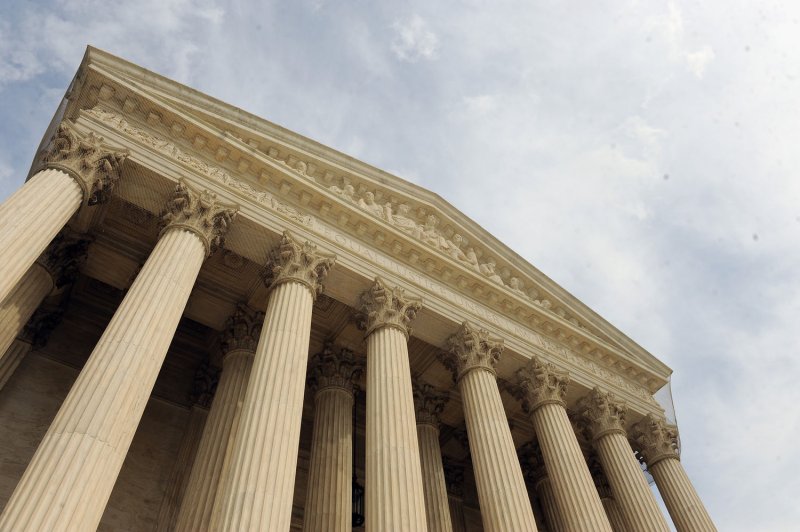The Supreme Court in Washington, DC. File photo. UPI/Roger L. Wollenberg |
License Photo
WASHINGTON, Oct. 12 (UPI) -- The U.S. Supreme Court heard argument Wednesday on when jail strip searches are constitutional.
In the case, on March 3, 2005, a New Jersey state trooper stopped the car in which Albert Florence was a passenger and arrested him based on a 2003 bench warrant from Essex County. The warrant charged Florence with a non-indictable variety of civil contempt, court records say.
Florence protested the validity of the warrant by insisting he had already paid the fine on which it was based, but he was arrested and taken to the Burlington County Jail.
There he was subjected to a strip and visual body-cavity search by corrections officers.
"During the jail's intake process," a U.S. appeals court said, "Florence was directed to remove all of his clothing, then open his mouth and lift his tongue, hold out his arms and turn around, and lift his genitals. The officer conducting the search sat approximately arms-length in front of him, and directed Florence to shower once the search was complete."
After being held for six days, Florence was transferred to the Essex County Correctional facility where "he was subjected to another strip and visual body-cavity search upon his arrival" -- this time including a "squat and cough."
The next day Florence was released after the charge was dismissed. Florence then sued under federal civil rights law, claiming principally that his Fourth Amendment guarantee against unreasonable searches was violated.
A divided appeals court panel in Philadelphia ruled the searches were reasonable, and Florence took his case to the Supreme Court.
During argument Wednesday, none of the justices appeared prepared to rule for or against strip-searching of arrested individuals, SCOTUSBLOG.com reported.
Representing the correctional facilities, Washington lawyer Carter Phillips, conceded to Justice Sonia Sotomayor that there is "some constitutional right of privacy" in a jail setting, SCOTUSBLOG reported.
Justice Antonin Scalia sarcastically said what Phillips seemed to be advocating was a high court ruling limited to the validity of "squatting and coughing" inspections, the report said.
The justices should rule in the case sometime in the next several months.















